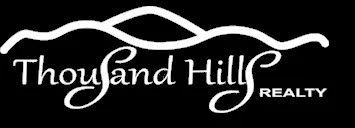How to Avoid Rental Scams

When you rent an apartment, there’s always a tendency that you will be experiencing some
problems with your tenancy. If you are lucky with your landlord, he may have a good intention in
every prospective renter.
If it is the otherwise, however, you may fall into an apartment rental scams. When you have
some basic knowledge about the scammers and their techniques, you can have the chance to
detect frauds and their shady schemes. Here are some tips that will teach you how to spot a
rental scammer while looking for an apartment to rent.
Dealing in Cash Is A Bad Start
When a landlord performs shady money operations, he does it through dealing in cash. This is
the reason why the crooks want to deal with real cash for the fact that money cannot easily be
traced. So, once you’ve paid your crooked landlord the cash for a new cozy place, he wants to
make sure that he can get away with it.
A landlord who has an intention to scam you will insist you to pay cash and will move on
to the next prospect if you refuse. Always remember that a security deposit and paying it upfront
should never involve money or wire transfer. They can be a part of rental scams.
Never Rent Without Looking the Place
Make it your priority to look at the place that you want to rent before you sign the lease
agreement. When the landlord doesn’t allow you to see the place, look for some other
apartment. A landlord who rents out the place is always ready to show it and confirm that it
seems like the pictures that you have seen on the website. When a landlord will give you a
schedule to visit the place, be ready to evaluate the real property condition.
You should ensure that any family member or your friend pays a visit to the place and takes a
look at it before you decide to rent the unit. While there are lots of scammers that have access
to the property, insisting a house visit is a right step towards a transparent rental process.
Always Sign a Written Lease Agreement
A written lease agreement is the right form of lease that you should sign before you commit to
renting the unit. Never settle for a verbal agreement. Even though some states allow verbal
agreement (for example, Maryland), there is always a chance that you’ll have to take this case
to court and become a real headache for you and makes it hard to resolve. Make sure the lease
contract should have the signatures of the homeowner and tenant. This rule should make life
easier and safer for you.
Know the Name of the Owner of the Property
Before you sign the lease agreement, you should ask for the documents of the homeownership
that prove that you’re dealing with a person who has the authority to rent out this place. This will
help you identify that the deal is legit.
Don’t believe anyone who will tell you that the documents will be sent to you later. A real
homeowner doesn’t have any reason to delay showing off the papers. When you see the
records and the name that doesn’t match with the name of the landlord, then begin to doubt it.
Make Sure the Name of The Owner is Included in the Lease
The lease agreement should include the name of the actual homeowner to ensure that the
house is rented out legally. Anyone who is personating the homeowner or says he’s working on
behalf of the owner should have the corresponding documents to prove it. It also goes to a
situation where the documents state that the house has two owners, in which case, you should
ask for a written confirmation from the second owner that he is aware of the rental process and
approves the rental agreement.
Sub-leasing Is Not A Good Idea
When you engaged in sub-leasing the unit, it can be the most dangerous thing that you can get
yourself into. Checking whether you have the right to sub-lease the place is hard to believe, and
you can never be sure that everything is alright and you’re going to become a part of rental
scams there.
The hardest thing about sub-leasing is that both you and the second party tenant cannot feel
secure about the lease agreement and the fact that the landlord can evict both of you if the
sub-lease is forbidden in the original lease agreement.
Any landlord who is a potential scammer has the tendency not to show you the place, skip any
real interactions, including the property tours and signing of the lease that legitimate landlord
usually prefers.



